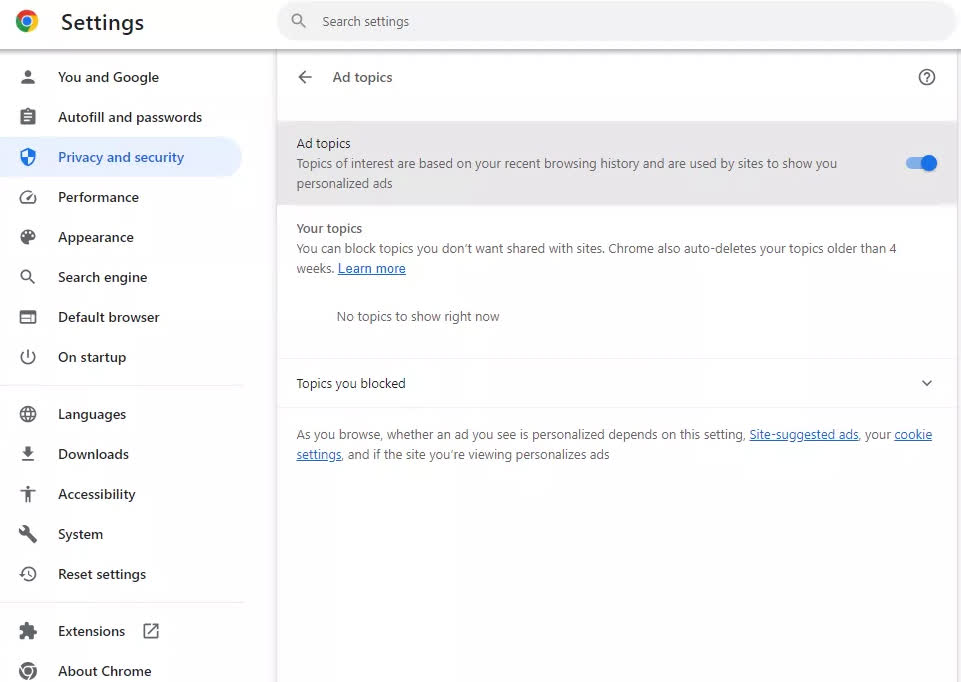In brief: If you recently received a pop-up mentioning targeted ads when opening Google Chrome and clicked the "Got it" button, you've opted into a new setting that shares your browsing history with advertisers to deliver targeted ads. Fortunately, deactivating this feature in the settings menu is relatively simple.

Google is gradually introducing a new method for delivering targeted ads in Chrome that aims to bypass the controversy surrounding cookies by using browsing history instead. This strategy may raise concerns rather than improving the situation, but it's important to note that it remains optional.
The company informed users of this change through a pop-up in Chrome versions 115 and later, which includes options to either dismiss the message and opt in or navigate to the settings menu to deactivate it. For those who initially enabled the feature and wish to disable it, you can do so by going to Settings > Privacy and Security > Ad Privacy > Ad Topics. Furthermore, users who choose to keep this setting enabled can also block specific topics they don't want advertisers to access.
Click to enlarge
Chrome's new ad-targeting system is a part of its recently introduced TopicsAPI, which allows advertisers to access users' browsing history instead of relying on third-party cookies from websites. Google has been planning to shift away from cookies for a while because they have the potential to allow advertisers and other external groups to identify and track users.
You've likely encountered messages on most major websites, giving you the option to either accept all cookies, individually manage advertising and tracking cookies, or only accept cookies necessary for basic site operation. Websites are required to provide users with this choice to comply with the GDPR, which the European Union passed a few years ago in response to privacy concerns related to cookies. Unfortunately, users often opt to accept all cookies just to quickly dismiss the pop-ups.
Google claims that the browsing history provided to third parties through the TopicsAPI doesn't enable them to identify users, making it a safer alternative to cookies. However, it's still unclear whether advertisers could potentially use this browsing history to fingerprint individual users, as they have done in the past based on other information.
Another source of controversy concerning Chrome and advertising is Google's plans to eventually phase out ad-blocking extensions for the browser with the transition to Manifest V3. The company has had to postpone this transition, promising to support ad blockers at least through the remainder of 2023. However, organizations like the FBI recommend using ad blockers to prevent ad-based scams and cyberattacks.
https://www.techspot.com/news/100056-google-chrome-now-targets-ads-based-browser-history.html
